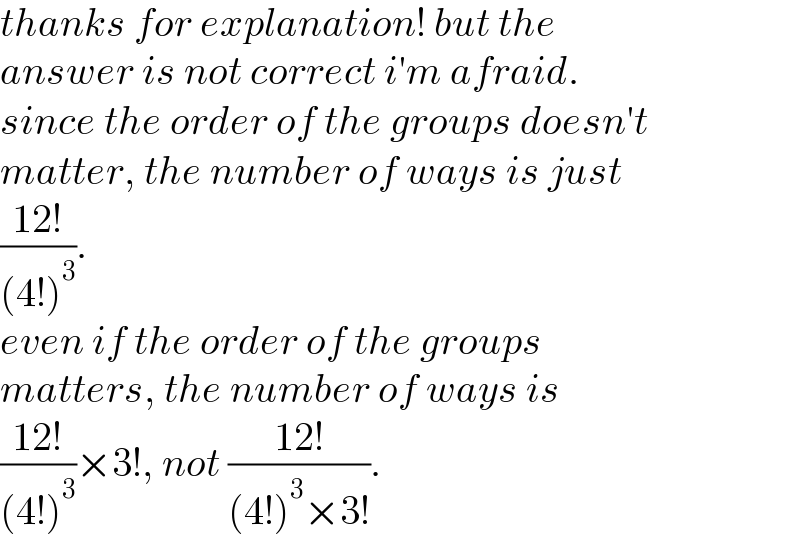
Question and Answers Forum
Previous in Permutation and Combination Next in Permutation and Combination
Question Number 142765 by mr W last updated on 05/Jun/21
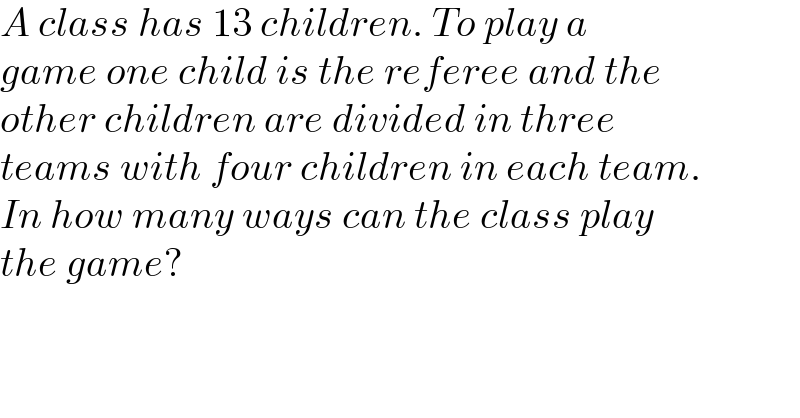
Commented by mr W last updated on 06/Jun/21
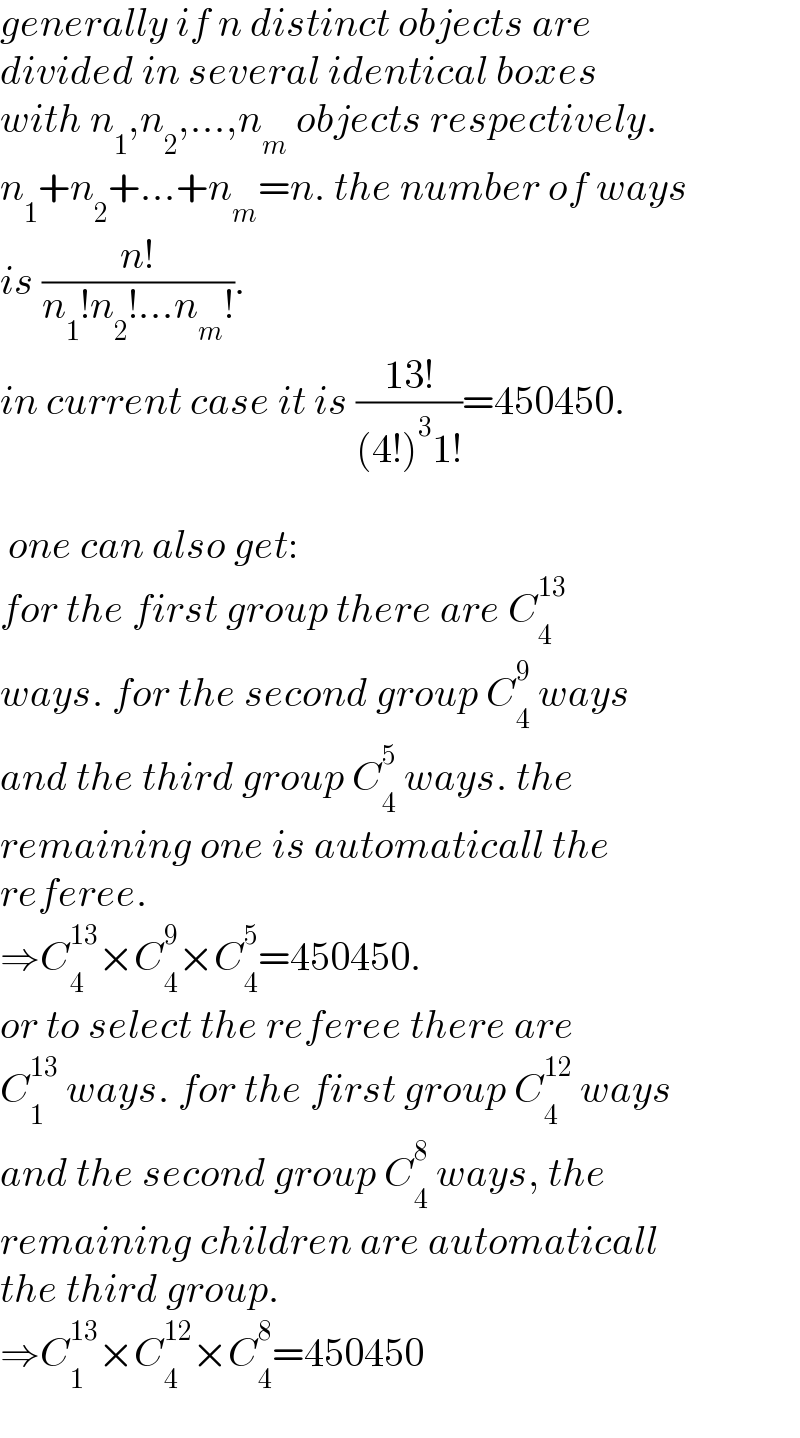
Answered by gsk2684 last updated on 05/Jun/21
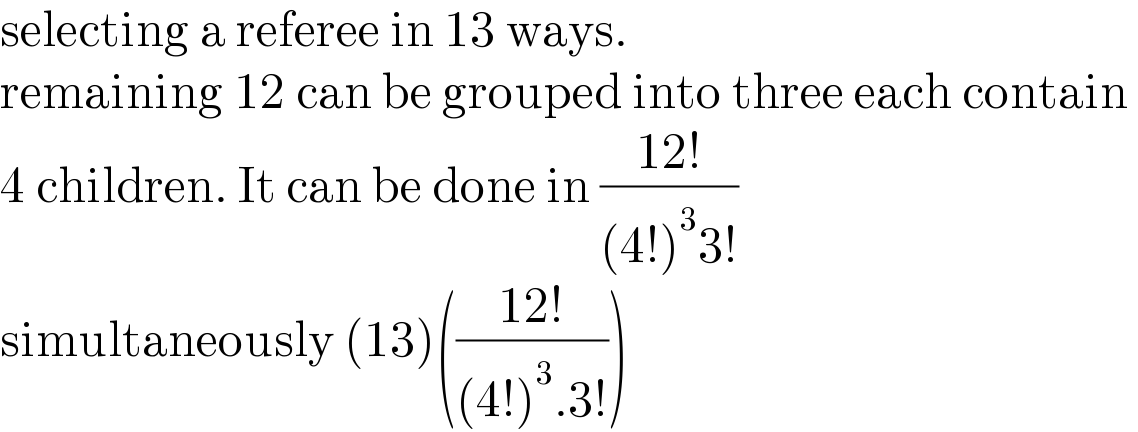
Commented by mr W last updated on 05/Jun/21

Commented by gsk2684 last updated on 06/Jun/21
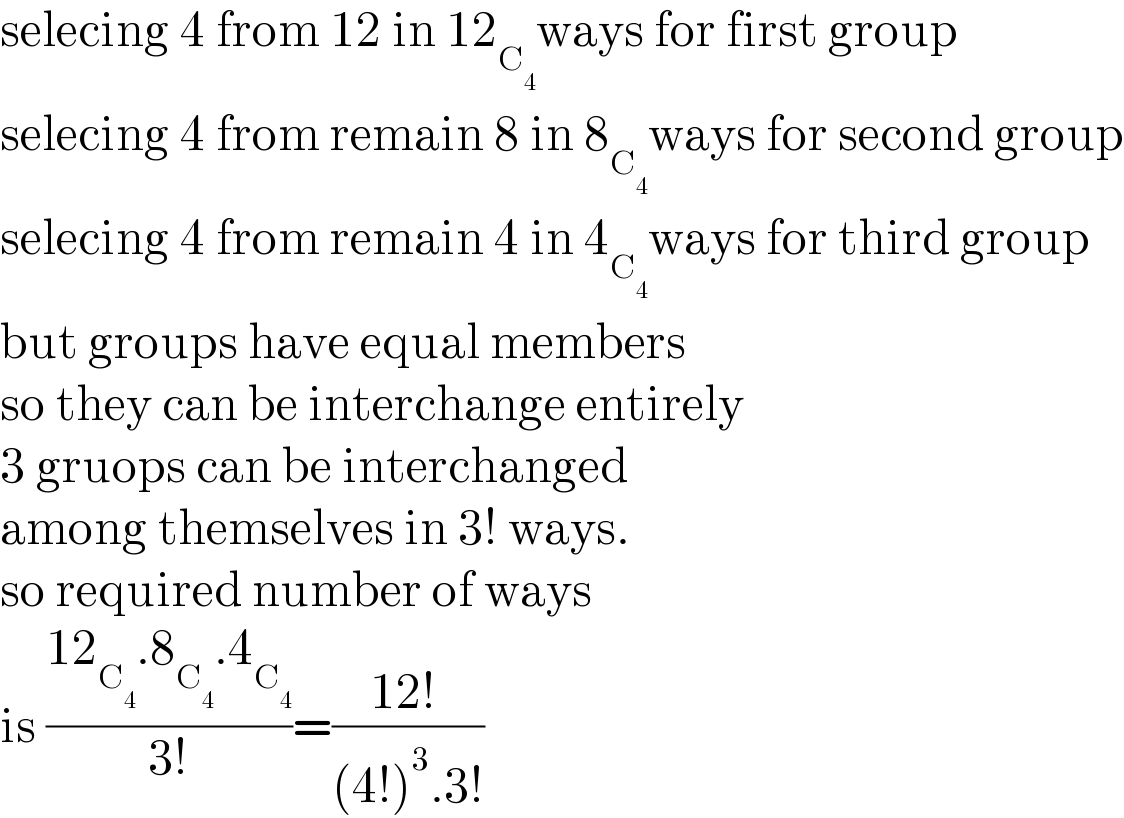
Commented by mr W last updated on 06/Jun/21
